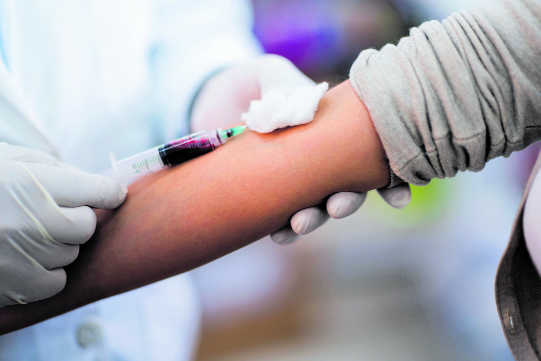
botched-up transfusion: Even if a laboratory mixes blood test reports, the doctors and hospital are equally liable
Pushpa Girimaji
My wife died from transfusion of mismatched blood following a surgery. Her blood group was B positive, but was given A positive, which eventually resulted in her death. When I complained, the hospital blamed the laboratory, which, they said, mixed up the reports and gave a wrong blood grouping. However, I had clearly told the doctors before surgery that she was B positive. I now want to file a complaint before the consumer court and would like to know whether I should file it against only the laboratory or the hospital or both? What kind of evidence do I need to file this complaint?
The laboratory was obviously negligent in the discharge of its work. However, I would hold the doctors treating her even more negligent. First and foremost, you had informed them that your wife’s blood group was B positive. So, if the laboratory result was different from what you had told them, they should have got the blood grouping done once again. Besides, before transfusion they should have done cross-matching of a sample of the donor’s blood and your wife’s to determine whether the two were compatible. The doctors did none of these. So hold the laboratory, the doctors and the hospital accountable and name all of them as opposite parties in your complaint before the consumer court.
As for evidence, you need to produce the laboratory results on the blood grouping; the hospital records pertaining to the transfusion of wrong blood and the adverse effects that it produced, resulting in the death of your wife. Remember, you have a right to all the medical records and the hospital has to give it to you.
Can you recall a case law to help me with my complaint?
I would like to quote here the judgement of the Supreme Court in the Post Graduate Institute of Medical Education and Research, Chandigarh, Vs Jaspal Singh and another (Civil appeal no 7950 of 2002, date of order: May 29, 2009)
This case goes back to March 30, 1996 when Harjit Kaur received third degree burns following an accident while making tea. She was immediately rushed to Dayanand Medical College and Hospital, Ludhiana, where she slowly started recovering. However, on the ground that the treatment was expensive there, her husband moved her to the Post Graduate Institute, Chandigarh, on April 19. She recovered quite substantially here till the transfusion of wrong blood.
On May 15, the hospital gave her the right blood group, A positive; however, on May 20 and 21, she was given B positive, resulting in a drastic setback to her health. There was a sharp fall in her haemoglobin level; her kidney and liver functioning were adversely affected. An enquiry following a complaint confirmed transfusion of wrong blood. However, the hospital argued that she did recover from that and the eventual cause of death was septicaemia and not wrong transfusion of blood.
In response to a complaint from Harjit Kaur’s husband, the State Consumer Disputes Redressal Commission held the hospital and its staff guilty of negligence and awarded a compensation of Rs 2 lakh, besides costs of litigation. The Commission ordered that while 3/4th of the amount should be kept in a fixed deposit in the name of the minor son (second complainant), the rest should be paid to the husband (first complainant). When this was upheld by the National Consumer Disputes Redressal Commission, the hospital filed an appeal before the Supreme Court.
While dismissing the appeal, the Supreme Court said: “... Although she survived for about 40 days after mismatched blood transfusion, but from that it cannot be said that there was no causal link between the mismatched transfusion of blood and her death. Wrong blood transfusion is an error which no hospital/doctor exercising ordinary care would have made. Such an error is not an error of professional judgment but in the very nature of things a sure instance of medical negligence. The hospital’s breach of duty in mismatched blood transfusion contributed to her death, if not wholly, but surely materially. Mismatched blood transfusion to a patient having sustained 50 per cent burns by itself speaks of negligence. Therefore, in the facts and circumstances of the case, it cannot be said that the death of Smt. Harjit Kaur was not caused by the breach of duty on the part of the hospital and its attending staff.”
The full judgement of the Supreme Court can be obtained online. You can also get plenty of information on the adverse effects of wrong transfusion of blood on the world wide web.



























